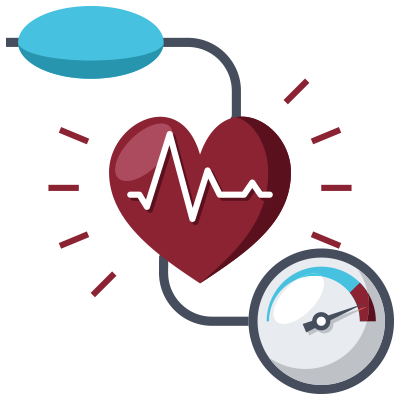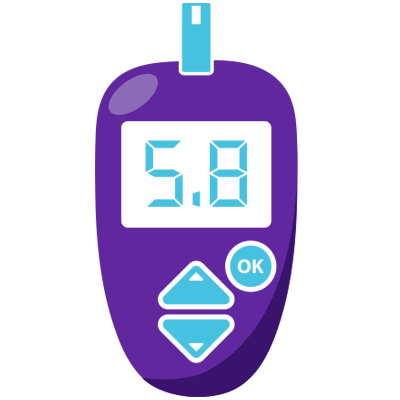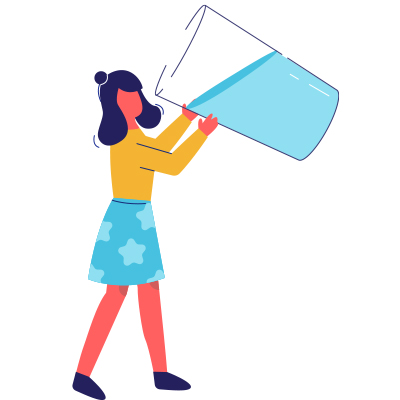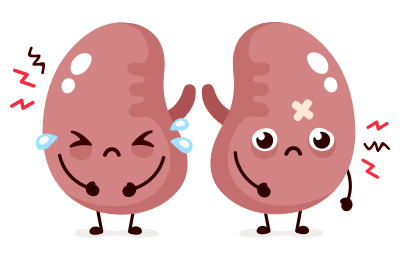It’s common knowledge that the kidneys are a major organ in the human body. They filter blood and remove excess waste and fluids. They also regulate the body’s potassium, acid, and salt content. Kidneys produce certain hormones that affect the function of other major organs. They stimulate red blood cell production and help to control calcium metabolism and regulate blood pressure.
These two little beans are, without a doubt, some of the most essential organs in your body, and their health is vital to yours. Since March is National Kidney Month, we’ve put together a list of ways to ensure your kidneys stay healthy.
Keep an eye on your blood pressure.

High blood pressure is a well-known cause of kidney damage, and when coupled with other serious health issues, like heart disease or diabetes, it can have a significant impact on your body. A typically healthy blood pressure reading is 120/80; anything between that point and 139/80 is categorized as stage 1 hypertension.
If you find yourself in the stage 1 range, dietary and lifestyle changes could help lower your blood pressure without medication. Losing a few pounds, reducing your sodium intake, and limiting alcohol are a few things your doctor might suggest to lower your blood pressure. Reducing stress and cutting back on caffeine can also be beneficial.
If you find you’re consistently above 140/90, then it could indicate that you have high blood pressure, though you would need to speak with your doctor to be sure. Just as with prehypertension, lifestyle changes might be enough to lower your readings; however, medication might be prescribed at this point.
Stay active!

Make sure you exercise regularly and keep active. A consistent exercise regimen is a great way to keep the entire body running smoothly. This doesn’t mean you have to start running marathons, though. Everyone’s limits are different, and your exercise doesn’t have to be the same as the person next to you.
Walking, bike riding, or even dancing are good for both your kidneys and your overall health. The key is finding something that will keep you moving and that you enjoy. We encourage you to consult a physician before making any major changes to your exercise routine.
Watch your blood sugar.

Diabetes, or other conditions that cause high blood sugar, can lead to significant kidney damage. When our bodies can’t use the sugar (glucose) in our blood, it forces the kidneys to work overtime to filter our blood. As the years go on, this type of consistent overexertion of the kidneys can lead to life-threatening situations.
Controlling your blood sugar reduces the risk of this kind of damage. If there is damage already, don’t panic. When caught early, you and your doctor can create a plan to help prevent or reduce any additional damage that might occur.
Drink fluids.

Water, water water! We can’t stress it enough. We’ve all heard the rule of thumb that we need to drink eight glasses of water a day. It might be a cliché, but it’s an accurate one. Staying hydrated with regular water intake is healthy for your kidneys.
Water clears out toxins and sodium as well as lowers your risk for chronic kidney disease. As for how much water you should be drinking, that largely depends on lifestyle and health. Climate, gender, overall health, level of exercise, and whether or not you’re pregnant or breastfeeding are all critical factors when determining your daily dose of H20.
Don’t overdo it on the over-the-counter pills.

While we’ve all found ourselves, at one time or another, grateful for the existence of ibuprofen or naproxen, taking them regularly can have some risks. These nonsteroidal anti-inflammatory drugs, or NSAIDS for short, cause kidney damage when taken every day.
If you are someone who suffers from migraines, other headaches, arthritis, or chronic pain, we encourage you to talk to your doctor about some kidney-safe options for treating your pain.
Common Kidney Problems

So now that you know a few ways to keep your kidneys happy and healthy, you might be wondering what some signs that something could be wrong are and when you should seek treatment.
Not all kidney issues are created equal, but we’ve put together a quick checklist of some of the most common problems:
Kidney Stones
One of the most common issues with the kidneys is kidney stones. Kidney stones are usually caused by a buildup of certain minerals that clump together inside the kidney. You might not feel anything if the stone is small, but larger kidney stones can be quite painful when passing through the urinary tract. Some symptoms to look out for are, nausea or vomiting, a sharp pain on one side around the middle of your back, and blood in the urine.
Kidney Infection
Usually found in women, kidney infections are another common kidney problem. Often spread by bacteria that originated from another part of the urinary tract, kidney infections can cause vomiting, back pain, side or groin pain, and fever. If left untreated, these infections can also cause permanent kidney damage.
Acute Kidney Failure
Acute kidney failure – also called acute renal failure or acute kidney injury – is when your kidneys suddenly become unable to filter waste from your blood. When this happens, dangerous waste levels can build up in the blood and alter your blood’s chemical makeup. Acute kidney failure usually comes on rapidly, developing in just a few day’s time. This type of kidney failure can be fatal and requires intensive treatment but might be reversible depending on your overall health.
Severe dehydration, fatigue, confusion, dryness -dry tears, dry tongue, dry mouth-decreased urine output, nausea, and shortness of breath, are some signs of acute kidney failure.
If you’re experiencing these signs or symptoms of any of the issues listed above, you should see your doctor or seek emergency medical care. Find your nearest Neighbors Emergency Center.
The First Step is The Hardest (And The Most Important)
Our bodies take care of us, and we must take care of them. Implementing small steps today, like drinking an extra cup of water or taking the stairs instead of the elevator, might save your life tomorrow.

Back to Blog